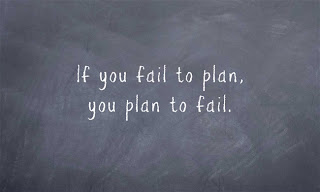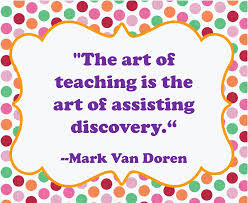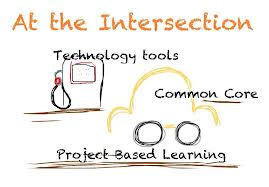Sunday, March 30, 2014
Wednesday, March 26, 2014
Blog post #10
In Sir Ken Robinson's video he discusses bringing on a learning revolution. I really enjoyed this video. One of the things that really stood out to me in the beginning of the video was when he was talking about not realizing the things we take for granted. It really stuck with me when he said we don't really know what we take for granted. How true is this? There have been many times where I have taken school for granted, when there are so many people out there who would love to have an education. We should never look at the opportunity to expand our knowledge as a hassle or something that we just "get through". I also really liked his example of how people over the age of 25 wear wristwatches, while people under the age of 25 don't feel the need to. I guess I've never really paid attention to why people do or don't wear a wristwatch, but it is very interesting how just a few years can make a change between two generations. I also appreciated the way he said that college is not for everyone. It seems like so many people today think that if you don't get a degree you won't amount to much in life. I believe this is completely untrue. There are so many people out there who have a calling on their life to do something that has nothing to do with whether or not you have a degree. Even in high school it seems like they teach college as the best thing you can do after graduation. In many cases, it is. But college is not for everyone, and not everyone needs college to be successful in life. My favorite part was when he said "Human communities depend upon a diversity of talent, not a singular conception of ability". Just because someone graduates school does not make them any more able, just like someone is not less able because they did not go to college. I hope that as a teacher, I will be able to personalize my curriculum to meet the needs of the students i'm teaching, more so than just trying to make sure they pass state tests. While I do think that the ability to pass a state test is important, it is not nearly as important as my students really learning what is being taught, and having a passion to learn more. Learning should be something students look forward to, not something the don't care about or something they don't feel like they are good at. I hope that I can build up the dreams of my students. I hope that I can make them feel like if they try hard enough, they can achieve anything. Even if their life looks different than the person next to them. I very much enjoyed Sir Robinson, and I plan to watch much more by him in the future.
Sunday, March 23, 2014
C4K
For this weeks C4K, I was assigned to Leilani's post . In her post, she talks about why she likes to wear a hat. She says it keeps her cool and helps prevent skin cancer. In my comment, I told her that I like to wear a hat to the beach to keep the sun out of my eyes, and to help prevent sunburn.
This week I was assigned to Esrah's blog. In his post, he described the best way to solve equivalent fractions. He says that you look at the completed fraction and the number in the incomplete fraction. Then you find a common number between the two. He seemed like he was unsure if this was correct. In my comment, I said I enjoyed reading his blog post. That even I get confused with fractions sometimes, but they get easier the more you practice. His blog would not let me publish my comment though, because it said only members of the blog could leave a comment.
This week, I was assigned to Shayne's blog. In his post he talks about how much he enjoys his Netbook, and how easy it is for him to use. He talks briefly about trying to learn Maori. He also said that he enjoyed playing rugby, and working in groups of two or less, or by himself. He said that he hopes to get better at rugby, and at reading and writing. In my comment, I told him that I have never owned a Net book, but that he made it sounds easy to use and understand. I also said that I hope he reaches his goals of becoming better at reading, writing, and rugby.
This week I was assigned to Esrah's blog. In his post, he described the best way to solve equivalent fractions. He says that you look at the completed fraction and the number in the incomplete fraction. Then you find a common number between the two. He seemed like he was unsure if this was correct. In my comment, I said I enjoyed reading his blog post. That even I get confused with fractions sometimes, but they get easier the more you practice. His blog would not let me publish my comment though, because it said only members of the blog could leave a comment.
This week, I was assigned to Shayne's blog. In his post he talks about how much he enjoys his Netbook, and how easy it is for him to use. He talks briefly about trying to learn Maori. He also said that he enjoyed playing rugby, and working in groups of two or less, or by himself. He said that he hopes to get better at rugby, and at reading and writing. In my comment, I told him that I have never owned a Net book, but that he made it sounds easy to use and understand. I also said that I hope he reaches his goals of becoming better at reading, writing, and rugby.
C4T
For this weeks C4T I was assigned to Andrea Kerr's blog. in her blog, she talks about having her students work in groups to practice exponential equations. While she said she had to monitor her students talking, that it worked out really well and she thinks her students really enjoyed it. In my comment, I said that I really like the idea of working in groups to keep things from getting 'boring'.
Wednesday, March 19, 2014
Blog post #9
I feel like Ms. Cassidy's interview was very insightful. I really liked the way she mentioned that teaching is not what it was 20, 10, even 5 years ago, so we can't teach the same ways we did back then. I really liked the video of her students showing us around their classroom/the things they do in their classroom. I feel like this video showed me different ways that I can keep my students identity safe online, like using first names with no last names, and never putting a picture with the name. At first, I was very standoffish to blogs in my classroom, but the more I watch and learn about other teachers successful experiences, the more I feel that is something I would for sure like to do in my own classroom. I liked the idea of parents being able to see their children's (published) work at any time, and also the way that you can track your child's progress throughout the school year. I really agreed with her when she said that there is almost no better way to teach students in this day and age, since they are so technologically minded. She said that them not having to "power down" when they came to class was good for them. I feel like technology can really make learning fun for the students, and that they would gain so much knowing how to do these things at such a young age. The two issues that I feel i may run into would be parents not wanting their children online/not wanting their child's information online, and students who may not have a computer at home they could work on. For both these issues, I would make sure that these students could do the same or a very similar assignment in written form that could be turned in to me. I really enjoyed listening to Ms. Cassidy and would love to see an updated video from her.
Sunday, March 16, 2014
Saturday, March 15, 2014
Blog post #8
When looking for a technology that would be helpful in the classroom, I stumbled upon a post about using online portfolios for your students. An online portfolio would be more beneficial than paper portfolios because they do not take up shelf space to store. They also give you the option to keep videos and media you would not store in a paper portfolio. One site I found to do this is Portfoliogen. It is free to use, and the site seemed pretty easy to navigate. In my future class room, I will probably use both paper on online portfolios. I hope to continue to discover new and helpful technologies to help me in my future classroom.
PBL Project 14 #2
A planning guide for ACCRS based elementary projects/units
Lesson Plan Grade Level: Third
Unit of Study: Dance
Project Title: Dance in everyday life
Start Date/Duration: Monday March 17th-Friday March 21st
Teachers: Alex Padgett
Identify the Challenge: Identify the elements of space, time, and energy in video productions involving dance.
Describe the scenario for the project:
Using words identifying spatial relationships such as over, under, around, through, and between to describe how Scarecrow and Dorothy dance down the yellow brick road in The Wizard of Oz; identifying elements of dance in everyday life. When done, upload video to the class blog
Craft the Driving Question:
How can you incorporate everyday movements into dance
Draft a Driving Question for the project:
Can you identify dance vocabulary and demonstrate them?
How will students share their products/solutions/ideas with a public audience?
By sharing it on the class blog and possibly uploading their videos to Youtube
______________________________________________________ Identify the key 21st century skills to be learned in the project.
❑ Teamwork and collaboration.
❑ Innovation and Creativity ❑ Effective Oral and Written Communication
❑ Work Ethic
Technology-based: Students will need to use a computer/Ipad/camera to record video and then upload it to the class blog
2. Define the PROFICIENT criteria for each Priority Standard:
Standard 1
Emerging
Below 2.0 2 Proficient
2.0 – 3.0 3 Exemplary
3.0 – 4.0 4 Breakthrough
3. How will you grade the project? Assign and weight grades for each product or skill. Content should be no more than 50% of the final grade.
Total:
100% End with Mastery
1. How will students prepare and practice for the final exhibition? We will set aside class time for the groups to plan and work on their project
2. Have you planned to reteach, if necessary? Yes
3. Does the project time line allot sufficient time for mastery? Yes
Lesson Plan Grade Level: Third
Unit of Study: Dance
Project Title: Dance in everyday life
Start Date/Duration: Monday March 17th-Friday March 21st
Teachers: Alex Padgett
Identify the Challenge: Identify the elements of space, time, and energy in video productions involving dance.
Describe the scenario for the project:
Using words identifying spatial relationships such as over, under, around, through, and between to describe how Scarecrow and Dorothy dance down the yellow brick road in The Wizard of Oz; identifying elements of dance in everyday life. When done, upload video to the class blog
Craft the Driving Question:
How can you incorporate everyday movements into dance
Draft a Driving Question for the project:
Can you identify dance vocabulary and demonstrate them?
How will students share their products/solutions/ideas with a public audience?
By sharing it on the class blog and possibly uploading their videos to Youtube
______________________________________________________ Identify the key 21st century skills to be learned in the project.
❑ Teamwork and collaboration.
❑ Innovation and Creativity ❑ Effective Oral and Written Communication
❑ Work Ethic
Technology-based: Students will need to use a computer/Ipad/camera to record video and then upload it to the class blog
2. Define the PROFICIENT criteria for each Priority Standard:
Standard 1
Emerging
Below 2.0 2 Proficient
2.0 – 3.0 3 Exemplary
3.0 – 4.0 4 Breakthrough
3. How will you grade the project? Assign and weight grades for each product or skill. Content should be no more than 50% of the final grade.
Total:
100% End with Mastery
1. How will students prepare and practice for the final exhibition? We will set aside class time for the groups to plan and work on their project
2. Have you planned to reteach, if necessary? Yes
3. Does the project time line allot sufficient time for mastery? Yes
Project 13 PBL #1
Our group decided to do a lesson plan on art, that includes dance. It is called Dance Out Loud. The idea of the project is to introduce the elements of choreography and choreographic form. They will understand the difference between dance as art, and dance as a sport. The students will present their projects in any form of media format.The objective is to identify, define, and practice elements of choreography. To show evidence of success in achieving identified learning target. The teacher will use available texts and other technology resources. Students will create a choreography dictionary in their choice of media format. Students will also demonstarte inderstanding of terminology through Media Presentation of the dictionary.
Subscribe to:
Posts (Atom)








